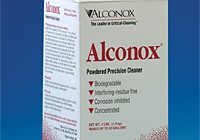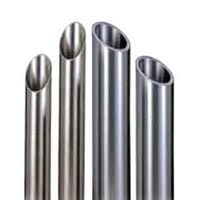Stopcock Grease Removal with Alconox
Q. Silicon oil based stopcock grease used to assure that ground glass joints and stopcocks did not freeze got onto glassware and could not be removed by standard cleaners.
A. Silicon the silicon grease contaminated glassware in very hot (170 deg F- 75 deg C) double strength 2% Alconox …
Cleaning Glassware Exposed to Sea Water
Q. What is the proper way to clean lab glassware that has been exposed to sea water?
A. Sea water contains a large and variable quantity of salts, biological and organic residues. Lab glassware needs to be free of any of these residues to avoid interference in research involving sea water. Sea water would not particularly present challenges beyond the normal array of residues that lab glassware sees in the wide variety of types of lab glassware that Alconox, Inc. laboratory detergents are used to clean. A standard cleaning protocol will work fine.
Chemical Resistance and Alconox
Q. Have you evaluated effects of Alconox on metals, elastomers, thermoplastics, and rubbers? Do you have a chemical resistance table/chart for Alconox? Thanks.
A. Alconox is compatible with a wide range of metals and plastics. You can contact cleaning@alconox.com to receive a copy of the current chemical compatibility spreadsheet. In general Alconox can be used to clean stainless steel, polyethylene, polypropylene, synthetic rubber, and PEEK.
Utilizing Alconox on Stainless Steel
Q: We currently use Alconox detergent on our manufacturing equipment as well as a glass cleaner in the labs. We are qualifying a piece of equipment and wanted assurance that Alconox detergent can clean different types of Stainless Steel. I downloaded the Tech Bulletin that notes Stainless Steel, but does not give any specifics. Do you have documentation regarding the different types of Stainless Steel that Alconox cleans from?
Medical Device Cleaning – Silicone & Metal Adhesion
Q. We manufacture metal parts in house and overmold (LIM) with silicone. We often have adhesion problems between the silicone and metal. We believe the problem is with our current cleaning process. I would like you to recommend a new cleaner that we can test.
A. If having silicone and metal adhesion issues in medical device cleaning, use the hottest practical temperature you can to remove silicone residues. I recommend you clean with very hot 2% Alconox (20 g/L of 2.5 oz/gal) detergent.


